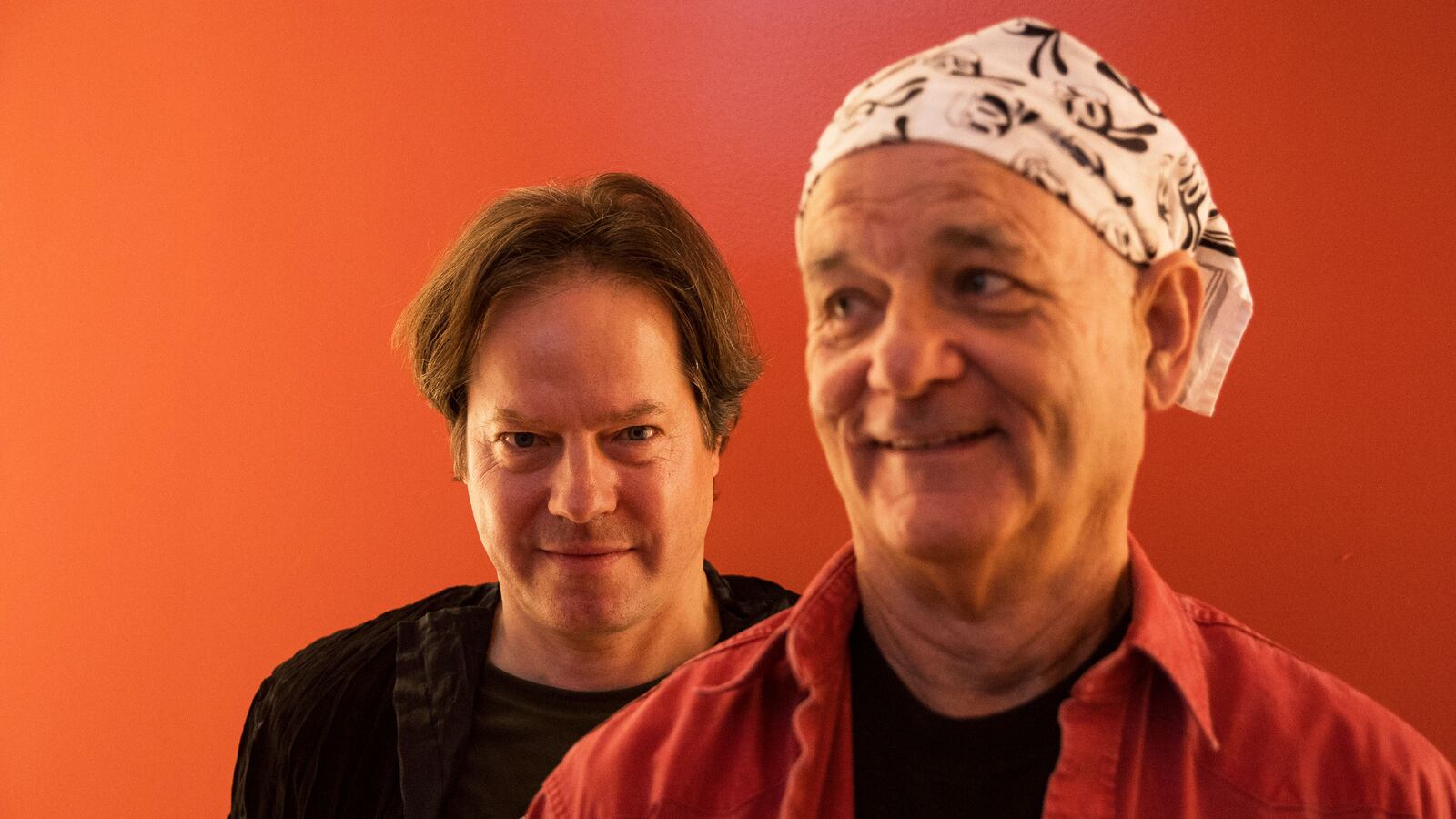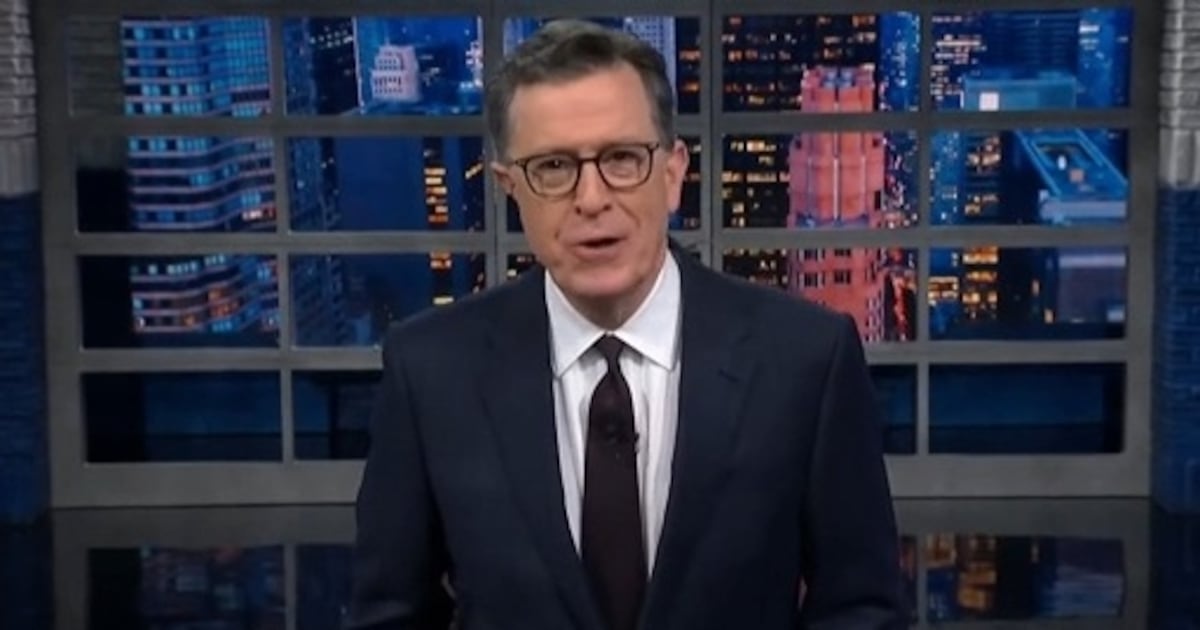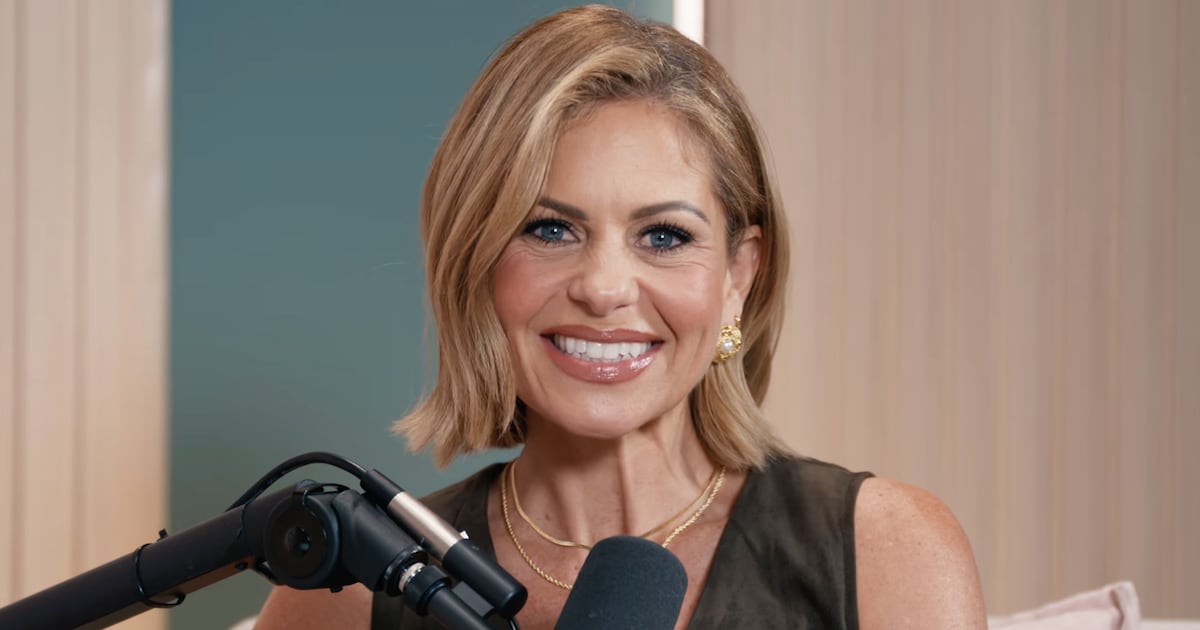Bill Murray looks upset. How many more of these do we have? the comedy legend snaps to someone off camera. He then rolls his eyes and mutters, Oh lord.
I’m not exactly sure what preceded my Zoom interview with Murray and Jan Vogler, the distinguished classical cellist, to discuss their new documentary New Worlds: The Cradle of Civilization, but whatever it is has brought me face to face with what Dan Aykroyd once coined “The Murricane.” When I ask the duo how they’re doing, Murray is silent. Vogler bravely fills the void by stammering, “We are… um… yeah,” in his unmistakable German accent.
It was an inauspicious beginning to our chat about the concert film, which sees Murray, Vogler, violinist (and Vogler’s wife) Mira Wang, and pianist Vanessa Perez perform the program “New Worlds” in Athens, Greece—a show filled with poetry, song, and music that aims to showcase “the core of the American values in literature and music.” That translates to Murray breathing new life into the words of Twain and Whitman or twirling across the stage whilst crooning “I Feel Pretty” from West Side Story, backed by Vogler and Co. It’s nothing short of exhilarating.
“There’s so much noise out there. There are so many sources. What do we all even agree about?” says Murray about the performance. “We don’t even watch the same television shows. We don’t read the same magazines or newspapers. We don’t see the same movies anymore. So, how do you get a shared learning experience? You can get it from going back.”
Murray—who’s been popping up all over New York City performing selections from New Worlds—soon warms up as we all chat about everything from his and Vogler’s surreal first encounter to the pandemic.
Bill, I live in Greenpoint and was at the opening of your son’s restaurant, 21. And you were behind the bar that night. It was funny because people would order these ornate cocktails and you’d lean in, nod, say, “Oh yeah, uh huh, sounds good,” and then hand them a shot.
Bill: [Laughs] I did the best I could—the very best—which wasn’t great. But it was acceptable, it turns out.
It was a fun night. How have you guys been faring during the pandemic? We are all living a dark, perverse version of Groundhog Day, to a degree.
Bill: I feel that. I hear that from people—that they can’t believe that this day goes on over and over again and it’s the same day where you’re left to your own devices to create life out of limited conditions. It’s probably good? Some good has come out of COVID. It’s made people more self-reliant, and made them be able to cook, and walk, and exercise, and play music, and read, do something for other people in some way—even if they have to be confined to their own homes. It’s an unusual condition that we’ve been given to work with, and in the moments you can grab it, take it, and work with it, it’s great. We’ve all had ups and downs in it. We always talk about the “Greatest Generation,” which has always upset me a little bit. Oh, are we finished now? We had the Greatest Generation? They had a Depression, and they had a World War—ugly, ugly circumstances—and that created this stick-to-itiveness. It revealed this gumption in people to survive, and I think that’s what’s coming out of this thing, too.
Jan: It was two very, very hard years for the music business. But always when I had performances, it was very special. The performances I did in the two years during the pandemic are more memorable to me. I would agree with Bill that it brought out something in us that’s important, but we hope this will all be over soon, and we can tour with “New Worlds” and have the joy of bringing music to new places in the world.

Bill Murray and Jan Vogler in New Worlds: The Cradle of Civilization
CineLifeWhat sort of music or shows have you been enjoying during the pandemic? I’ve been listening to a ton of Beatles since seeing Peter Jackson’s excellent documentary Get Back and found myself re-watching a lot of older shows as comfort viewing.
Bill: Well, I’ll echo what you’ve been saying. I’ve been watching Have Gun–Will Travel—an old cowboy show that starred Richard Boone as a gunfighter who would often solve a situation in an episode without any gunplay whatsoever. It was a really intelligent show and beautifully acted. Musically, my son turned me on to this performer Xavier Rudd, and he plays reggae music. It’s extremely soulful. He has a record called Live in the Netherlands and I put it on in crowds of people who are just wandering out mentally, spiritually, and emotionally, and it just sort of pulls the room together and gets everyone on one wavelength.
Jan: I listened to a lot of opera, actually, and it inspired me to adapt a whole set, from Renaissance times to Michael Jackson—Michael Jackson I consider opera—and I arranged those and made a record with the New York Philharmonic with opera arias playing on the cello. But it took me two years, because first I listened to all these great singers and then I thought I should play it because I got jealous of the music!
I read that you two met on a trans-Atlantic flight. How did that first meeting go? Were there some cocktails involved?
Bill: Well, it wasn’t a drunken flight by any stretch.
Jan: It was a morning flight!
Bill: We were boarding the plane and I look at him and he’s got this big cello box he’s dragging along, and I go, “Are you gonna be able to fit that thing in the overhead?” and he looked at me like I was mentally askew and said, “It has its own seat.” Not only did it have its own seat in first class, but it had the window seat and he had to sit in the aisle. So, I automatically thought, well, look at this guy? What a nice caretaker he is of this classy-looking box! And then we ended up having to become first responders to a lady who was having air panic—unfortunately too far out to turn around. We had to do the work of calming her down. It somehow came to us because nobody else was stepping up, so we just looked at each other and went, “OK, here we go. Let’s see what kinda chops we got.” And we succeeded. We got her all the way to America. That was our first job working together.
That must have been pretty surreal for this woman, who’s freaking out and then is suddenly being comforted by a legendary comedian and classical musician.
Bill: I’m not sure if she knew who was talking to her! I believe her eyes were crossed at the time we were speaking to her. Deeply and intensely crossed. She wasn’t seeing things quite as clearly as you and I at this moment. It may have helped a little bit that he’s so lyrical and I’m so funny-looking that she calmed down.
Jan: I gave her some pills and she calmed down.
Bill: You’re not supposed to tell her you give her pills! You’re gonna get in trouble!
Jan: It was all legal! And Bill made the stewardess get ice cream. Three times, she denied that she had any, but Bill was so assertive that she magically came up with some ice cream, and that was also helpful.
So, you guys knew you were a great team from day one. But how did you come up with the idea to marry Bill’s spoken word and singing to classical music? It’s not something you’d think would work but when you watch it there’s this wonderful tragicomic tone to it.
Bill: [Laughs] Our show is nothing if not tragicomic! We communicated a little bit, and I invited Jan to go to this poetry walk that goes across the Brooklyn Bridge, and he saw us all read poetry, and then he saw The Jungle Book and I murdered this song by Baloo the bear, and it was just acceptable enough to a classical player to say, “He seems OK. Maybe I can drown him out and we’ll have a show.” And then he went off—without my permission whatsoever—and came back and said, “Here’s a big stack of books and here’s a big stack of music. What if we read all this and played all this?” It was just too much work to disappoint him, and it was also a perfect representation of the American musical-literary experience. It was automatic, like, let’s go kill this thing. And this [Jan’s] wife, Mira Wang, the violinist, started playing, and then Vanessa Perez came from Uptown New York City and gave us this Latin American flavor to drive this thing.
Jan: The creation of the show was a wonderful time. I remember West Side Story was one of the first things we tried, and it worked right away. It was a process that was far out of my usual classical work, because we don’t just play classical, we play Broadway with West Side Story and Van Morrison, which Bill brought to the table.
There is a fun West Side Story medley in the production, and I know this was filmed prior to Stephen Sondheim’s passing, but I’m curious what he meant to you.
Bill: Well, he’s up there—way up there. To say his words—to sing his words—is a great piece of luck and a great obligation, too. In those big halls, when you hear those words echoing back at you, it’s a once-in-a-lifetime thing. To have those words pass through all those bodies out there, inform all those people, and have them come back is not describable in words.
Bill, I read that what you were a teenager you were the lead singer in a rock band called The Dutch Masters. Was your first dream to become a rock star?
Bill: Well, I was a rock star. But it was just in a really small town. I don’t pretend to be too artistic, but back then, your band was as good as the drumhead, and I just thought if we had a picture of The Dutch Masters on our drumhead, we would automatically be legitimate. No one else in the band wanted that moniker, but we ended up being The Dutch Masters. As I’ve gone on in this career that I’ve had, I think, “You know… I really should’ve tried rock ’n’ roll. I really should’ve tried it.” But I’m OK with what I got. I did OK. And playing with this band is about as good a rock ’n’ roll experience you can have. We didn’t have groupies or anything, but we had trouble getting through Customs just because we’re clumsy and had big instruments!
Was Dutch Masters a nod to smoking blunts? I smoked some Dutch Masters blunts when I was a kid.
Bill: No, it was before that! It was more like an ode to Ernie Kovacs, who was a funny man back in the day, and he had a TV show that was sponsored by Dutch Masters, and Ernie Kovacs would snap his cigar and be funny. He was a very funny fella, Ernie Kovacs.

Bill Murray and Jan Vogler
Peter RigaudBill, I enjoyed The French Dispatch but there does seem to be a contingent of people out there who have turned on Wes Anderson and his work. Do you feel audiences have become too cynical when it comes to Wes’ work?
Bill: Well, I don’t need to defend him. I think his work speaks for itself. But I think there’s been an unusual, sort of lunatic amount of criticism of his work as being something that’s beneath comprehension or even considering. I don’t think anyone that’s criticizing him is at all capable of doing what he’s doing. What he’s doing is incredibly, incredibly unselfish. It’s really difficult. It’s really hard. He demands much more of himself than he demands of his critics. If he wanted to be popular, like they want him to be, it would be easy as hell for him to do. He has no intention of pandering to those to please.
Bill, I grew up not only with your movies but reading Hunter S. Thompson’s work, and I understand you two were close friends. I wanted to ask you about one wild story to confirm it’s true. It was that Hunter called you in the middle of the night about a new sport he’d invented called “Shotgun Golf.”
Bill: Yeah, it’s absolutely true. He called me at some wacky hour—he was awake, of course—and there was something about it that was so immediate and necessary to talk about. It wasn’t, like, “Go to hell,” and hang up. We talked about Shotgun Golf for a while and riffed and exchanged, exchanged, exchanged. He wrote a piece about Shotgun Golf and he died soon after, so somehow, some part of me knew it wasn’t so much about writing some piece about Shotgun Golf as it was his way of saying, “So long. I’ll see you soon.”
And from what I understand, the game involved hitting a golf ball and then shooting it with a shotgun?
Bill: Yes. With a shotgun. Hitting the golf ball and then having to shoot it with a shotgun.
I’m not gonna lie, that sounds like a lot of fun and I really wanna play it.
Jan: It sounds dramatic to me!
Bill: You just need some ammo and a decent swing. You don’t want someone with a wicked slice or you could… hurt someone.






